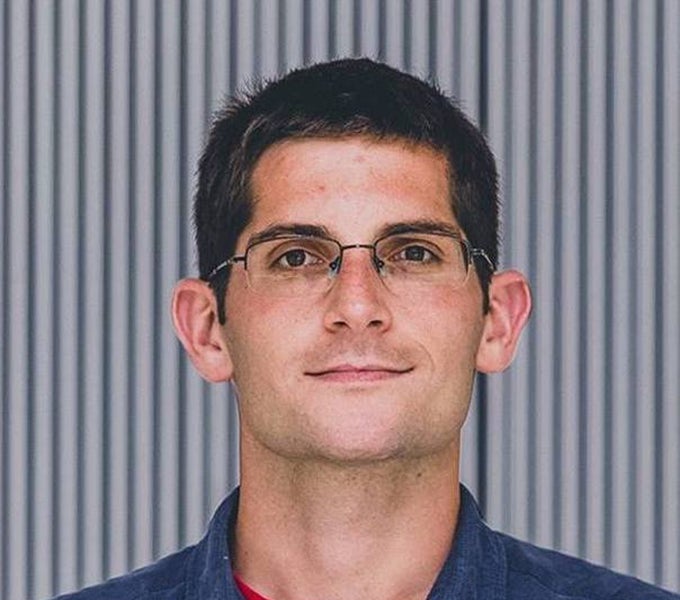July 28, 2025
 In the last year or so, artificial intelligence (AI) has come to the forefront in many fields, but how does it connect education and the workforce? Morgan Frank, an assistant professor with the School of Computing and Information (SCI), has recently been awarded a prestigious $80k fellowship from Microsoft’s newly launched AI Economy Institute to study just that.
In the last year or so, artificial intelligence (AI) has come to the forefront in many fields, but how does it connect education and the workforce? Morgan Frank, an assistant professor with the School of Computing and Information (SCI), has recently been awarded a prestigious $80k fellowship from Microsoft’s newly launched AI Economy Institute to study just that.
The funding from Microsoft supports Frank’s ongoing work to understand how exposure to large language models (LLMs) and curriculum design can shape workforce outcomes.
“I believe that my project stood out to Microsoft because it brings together new datasets that other researchers do not have,” Frank stated, noting that his work examines datasets with millions of U.S. workers’ resumes and U.S. university’s curriculum.
The highly competitive application process for the fellowship meant Microsoft contacted large groups of academics with requests for project proposals.
Frank mentioned how participating in Microsoft's AI Institute is a great way to unite the research and industry perspectives on AI, especially since there is a great deal of uncertainty in how AI will impact college-educated workers. An example Frank highlighted involved two articles from Antropic and The Economist published within four days of each other, each having highly polarized opinions. The former warned that AI could eliminate half of all entry-level white-collar jobs, whilst the latter discussed how AI had not taken any jobs from workers.
Frank’s research acts as a foundation for this conversation and aims to eliminate uncertainty by identifying the nature and magnitude of LLM’s effect on worker characteristics such as job loss, wage changes etc., and further quantify how education shapes these outcomes for recent graduates who enter the workforce.
“Currently, there are many voices promoting an AI-driven utopia or, conversely, a future with mass unemployment and limited democracy. Either claim is extreme, and I do not see facts that support them,” Frank said.
Frank emphasized the importance of having facts to heavily opinionized claims, and his outlook as a researcher involves providing facts with neutrality and transparency to their greatest ability. That is when policymakers and the public use those facts to guide their outlook and policies. The work is especially timely as policymakers search for guidance on how education systems must adapt, and which populations are most at risk of disruption.
To Frank, Microsoft’s AI Economy Institute is an important partner in shaping the conversation around AI more broadly
“I think Microsoft sees AI not only as a driver of economic change, but as a force that fundamentally reshapes how education prepares people for work,” Frank said. “By supporting research like this, they’re creating a public good, one that can’t be built through academic or corporate efforts alone.”
In June 2025, Frank visited Microsoft’s headquarters in Redmond, Washington, where the AI Economy Institute fellows met face-to-face for the first time.
“I’m most looking forward to personally connecting with the other researchers and our counterparts at Microsoft,” Frank said before his visit. “Microsoft employs many analysts studying AI’s impact on the economy and education, and I’m happy to see how our collective work comes together.”
The Microsoft AI Economy Institute is also a powerful mechanism for bridging the gap between academic research and real-world applications, according to Frank.
“In addition to the funding and networking, the Institute provides a rare opportunity for information sharing between researchers and industry practitioners,” he said.
As Microsoft continues to develop and deploy AI systems across sectors, Frank believes that gaining insight into those internal developments, often ahead of public awareness, can help academics frame more timely and impactful research questions. This kind of access allows researchers to better understand how AI technologies evolve in practice, not just in theory, and to identify where societal risks or opportunities may arise.
Making an impact on future researchers who are interested in the intersection of AI, work, and society, Frank offers two key pieces of advice:
“First, don’t subscribe to the hype… ground your thinking in data,” he said. Even long-standing economic theories can become outdated when the real world shifts dramatically, and understanding those changes requires empirical evidence.
“Second, while classical economics is powerful, it’s not the only way. New insights that change the conversation often require new data or new methods,” he added. Frank encourages future scholars to be both creative and rigorous and to explore innovative approaches while remaining mindful of the limitations and implications of their research.
In addition to Frank’s fellowship with Microsoft, he continually shares the implications of his research closer to home at various Pitt events such as the Pitt Business Impact Conference on Artificial Intelligence 2025. Ultimately, Frank hopes his work – now with additional support from Microsoft - helps policymakers move beyond reactive decision-making and towards targeted, equitable policies that protect the most vulnerable workers and students, especially as resources for research remain limited and the stakes continue to rise.
